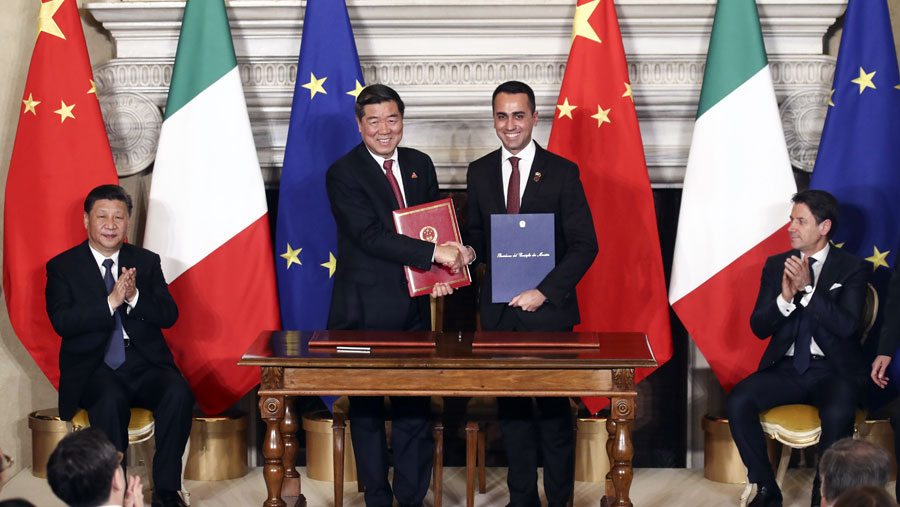China, Italy sign BRI MoU to advance connectivity


ROME -- China and Italy signed here Saturday a memorandum of understanding (MoU) to jointly advance the construction of the Belt and Road during Chinese President Xi Jinping's state visit to the country.
The two sides welcome the signing of the intergovernmental MoU on jointly advancing the Belt and Road construction, said a joint communique issued by the two countries.
The two sides realize the huge potential of the Belt and Road Initiative (BRI) in promoting connectivity, and stand ready to strengthen the alignment of the BRI and Trans-European Transport Networks and deepen the cooperation in ports, logistics, marine transportation and other areas, the communique said.
The two sides expressed willingness to join efforts under the Asian Infrastructure Investment Bank (AIIB) to advance connectivity in line with the AIIB's mission and functions.
More air links can be expected as the two sides agreed to facilitate airlines from each other to do business and ease the market access for them, according to the communique.
During his state visit to Italy from March 21 to 24, Xi held talks with Italian President Sergio Mattarella and Italian Prime Minister Giuseppe Conte on bilateral ties, as well as regional and international issues of common interest.
The communique said the two sides have agreed to advance China-Italy comprehensive strategic partnership in the spirit of mutual respect and mutual benefit for win-win outcomes.
Actions will be taken to fully implement the important consensus reached by the leaders of the two countries, it added.
The two sides reiterated their commitment to promote multilateralism and maintain the international system with the United Nations at its core. They agreed to oppose protectionism of any form, promote trade and investment liberalization and facilitation, maintain the World Trade Organization (WTO)'s central role and jointly push for necessary reforms to the WTO.
The two sides agreed to work with each other on cooperation in fields such as environment and sustainable energy, agriculture, sustainable urbanization, health, aviation, space technology, infrastructure and transportation, according to the communique.
The two sides also expressed willingness to strengthen cultural cooperation that includes heritage protection and fight against relic trafficking, education cooperation that highlights language studies, judicial cooperation that involves extradition and anti-graft experience sharing, and law enforcement cooperation.
During Xi's visit, the two sides signed 19 intergovernmental bilateral cooperation documents, the communique said.

































